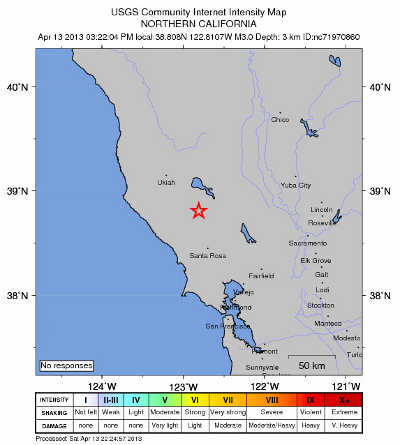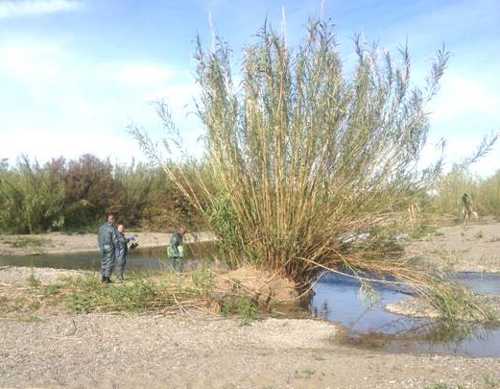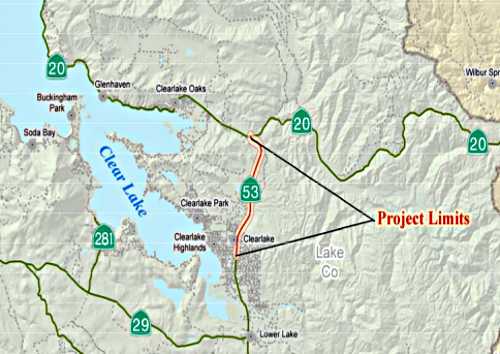LUCERNE, Calif. – An administrative law judge heard nearly two hours of testimony Friday night from Lucerne residents angry, frustrated and – in one woman’s case – choked with tears over a proposed water rate increase for the lakeside town.
The California Public Utilities Commission hosted the hearing, attended by more than 200 people, at the Lucerne Alpine Senior Center.
Statewide, California Water Service Co. is seeking $92.7 million in rate increases. In the Redwood Valley-Lucerne District, Cal Water is asking to raise rates by 58 percent or $839,300 in its “no phase-in” plan or by $1.29 million or nearly 69 percent over three years in its phased proposal.
Cal Water says an average user who now pays $62.85 a month for 500 cubic feet of water would see bills rise to $104.59 per month under the no phase-in plan and $124.22 under the phase-in.
The County Administrative Office, which submitted testimony for the rate proceeding, doesn’t agree with Cal Water’s estimate of an average user’s bill, pointing to high foreclosure rates and many vacation homes. The county’s estimate puts an average monthly bill for Lucerne at $158.77.
Cal Water officials told Lake County News on Friday that they are unable to separate out vacation homes, and they didn’t believe the county’s estimate was accurate.
For the small town, which over the past decade has seen several sizable rate increases in the midst of foreclosures and the recession, it’s a devastating scenario. Cal Water previously proposed a 273-percent rate increase proposal in 2005; residents were galvanized by that effort and fought it, although a 120-percent rate increase eventually was passed.
Administrative Law Judge Linda Rochester insisted that residents behave at the Friday evening hearing as if they were in a courtroom for the proceedings.
She is one of six administrative law judges fanning out over the state to handle 18 rate hearings for Lucerne’s various districts. The main assigned judge is Robert Mason, who will preside over formal hearings in San Francisco, she said.
Also present were Regina Costa of The Utility Reform Network – or TURN – and Ting Yuen of the CPUC’s Division of Ratepayer Advocates.
Darin Duncan, Cal Water’s rates manager, gave a brief overview of the rate case, which was filed last July.
“I know this is alarming,” Duncan said of the rate increase, which elicited laughter from the audience.
Primary drivers for the rate increase are infrastructure, including proposed replacement of 2,000 feet of pipeline, work on system water tanks and water quality enhancements at the district’s water plant, Duncan said.
Yuen said the Division of Ratepayer Advocates has as its statutory mission the work of advocating for the lowest possible rates consistent with safe and reliable service.
“Our recommendation is lower than the company’s,” said Yuen.
He said the division’s proposal was less than half of what Cal Water was seeking for plant investments. After the meeting, he told Lake County News that the division wasn’t proposing to reduce Cal Water’s request to meet government-required water quality standards.
Approximately 37 people testified at the meeting, with each speaker limited to two minutes.
Going to the microphone first was Supervisor Denise Rushing, who filed testimony on behalf of the town and who, along with the county, is a party of interest in the case.
People may seem hostile or angry, she said, but the overriding emotion is fear – with residents fearful that they may have to move from their homes and community, where the water bills already are high. Even if they do go, it’s not clear they can sell their homes, Rushing explained.
She said the town’s residents also are afraid that no one will hear them and respect their concerns. “Will they be able to stay in their homes and stay in the community, to put food on the able?”
Rushing said she understands the CPUC’s process, but she asked the commission to not just see this as another rate hearing. “I would like you to consider extraordinary action,” she said, asking for help for the impoverished town, which pays the second-highest rates among the corporation’s 34 districts.
Those who followed Rushing to speak to the judge challenged the rate hike proposal, citing rates far higher than in other districts, and calling Cal Water a monopoly that has continued to raise rates while people have had their wages and pensions cut.
Frank Parker, a member of the United Veterans Council leadership, said seniors and vets have had only small cost of living increases in retirement benefits, the most recent less than 2 percent.
“They make a profit. We lose. Things are going backwards here,” he said.
Dentist Doug Reams, who leads the recently formed Roaring Mouse Alliance that focuses on Lucerne’s water issues, said the group is advocating for eminent domain and having the system taken over by the county. He said the town is in crisis.
Lenny Matthews and others who spoke challenged the CPUC on whether or not it was unbiased, asking if the town could even get a fair hearing out of the state commission, the membership of which includes former utility employees.
Kurt McKelvey said the town’s rates have climbed by several hundred percent. Based on his calculations, which come from his reading of the public documents, McKelvey said Cal Water currently is taking in about $2 million from Lucerne each year.
“What can possibly justify us having to pay this much?” he asked.
Michael Santorelli told the commission that it’s as if Lucerne is being punished for not using enough water, with reduced water sales being one of the rate increase’s stated justifications.
He said that by his estimate fixed charges on bills are 67 percent of the overall cost for each customer. “It doesn’t make any difference if we conserve or not.”
Deputy County Administrative Officer Alan Flora recounted that the town was planned in the mid 1920s, but it never fulfilled the vision for it due to the Great Depression. However, in recent decades redevelopment made it possible to revisit the original vision for the town.
Since then, millions have been invested in improving lake access and public facilities, with the county also working to bring Marymount California University to the town, the county’s first four-year college.
However the burden of water costs is harming the county’s ability to bring more businesses to the town and hurting residents. He said the town was battling for its life.
Flora said a a longterm solution must be initiated, as the county doesn’t feel like the current model for water in Lucerne is providing a fair and sustainable service.
“The community of Lucerne is tired. It is worn down by the great recession,” he said.
Becky Ornellas, who along with husband Ken owns the town’s popular Foster’s Freeze restaurant, said the water rates are “killing us.”
She said the water tastes and smells terrible, yet their bills have been around $800 a month. “This is ridiculous. This is water.”
Lloyd Guintivano, deputy county counsel, said the county owns facilities and parks subject to the Cal Water system. The costs have hampered the county’s ability to bring new business to the area.
He said Lucerne families can’t afford more than $700 a year in additional water costs, and noted that previous increases imposed by the company have had the effect of driving business away from the Lucerne area.
Guintivano said the county is trying to eliminate blight and improve the town’s economic status, and Cal Water’s proposal won’t help.
Karen Kennedy said when she heard Cal Water was again coming to Lucerne over water rate increases, she started to think of parasites.
“I think we've reached the tipping point and Cal Water is killing Lucerne,” she said.
Archaeologist Dr. John Parker challenged the company’s proposal.
“This company does not provide a luxury or optional commodity,” but rather provides a commodity necessary for life, he said.
As the only water purveyor in Lucerne, Cal Water has a monopoly, and has made many rate increase requests, said Parker. Many of those requests have been amended, but none turned down.
Parker said the corporation recently paid out $26 million to investors, and suggested it needs to redirect profits to cover the needs of its systems. If it’s too onerous, he said the residents would be happy to purchase the system and turn it into a public utility.
The CPUC must maintain control over monopolies, said Parker. “Do not allow this rate increase.”
Clearlake resident Jim Steele, who sits on the Clearlake Oaks County Water District – which offers both water and sewer services to about 1,800 connections – said that district also had to do a rate increase, with rates going up to $32.36 a month for the first 1,500 gallons.
Like Lucerne, Clearlake Oaks also has 1960s-era infrastructure, takes water from the lake and is an older community. He said they did $100,000 in capital projects this year, have another $360,000 funded and stand to be $40,000 in the black, with depreciation fully funded, with combined water and sewer rates at $78 per month.
Michael Martinez, a 35-year Lucerne resident, said Cal Water knew the Lucerne system was old when it bought it. He accused the company of only doing emergency repairs and establishing a history of high maintenance costs, which he said have been used to justify the rate increases. “They’ve made millions.”
Those are the kinds of things the CPUC should address, Martinez said. “They need to clean their house and take care of things.”
Rochester thanked community members for coming, and said the meeting had been recorded and would be reported back to the commission. She told the group they were well informed about their water issues and how rates are made.
“There were ears here tonight that will work on your behalf, that heard everything you said,” Rochester added.
Email Elizabeth Larson at [email protected] . Follow her on Twitter, @ERLarson, or Lake County News, @LakeCoNews.

























